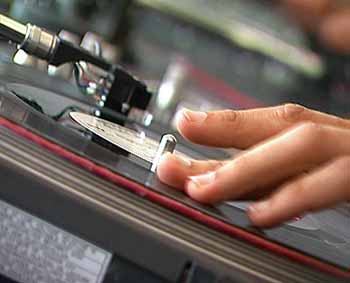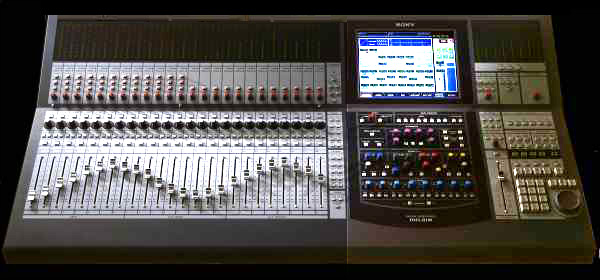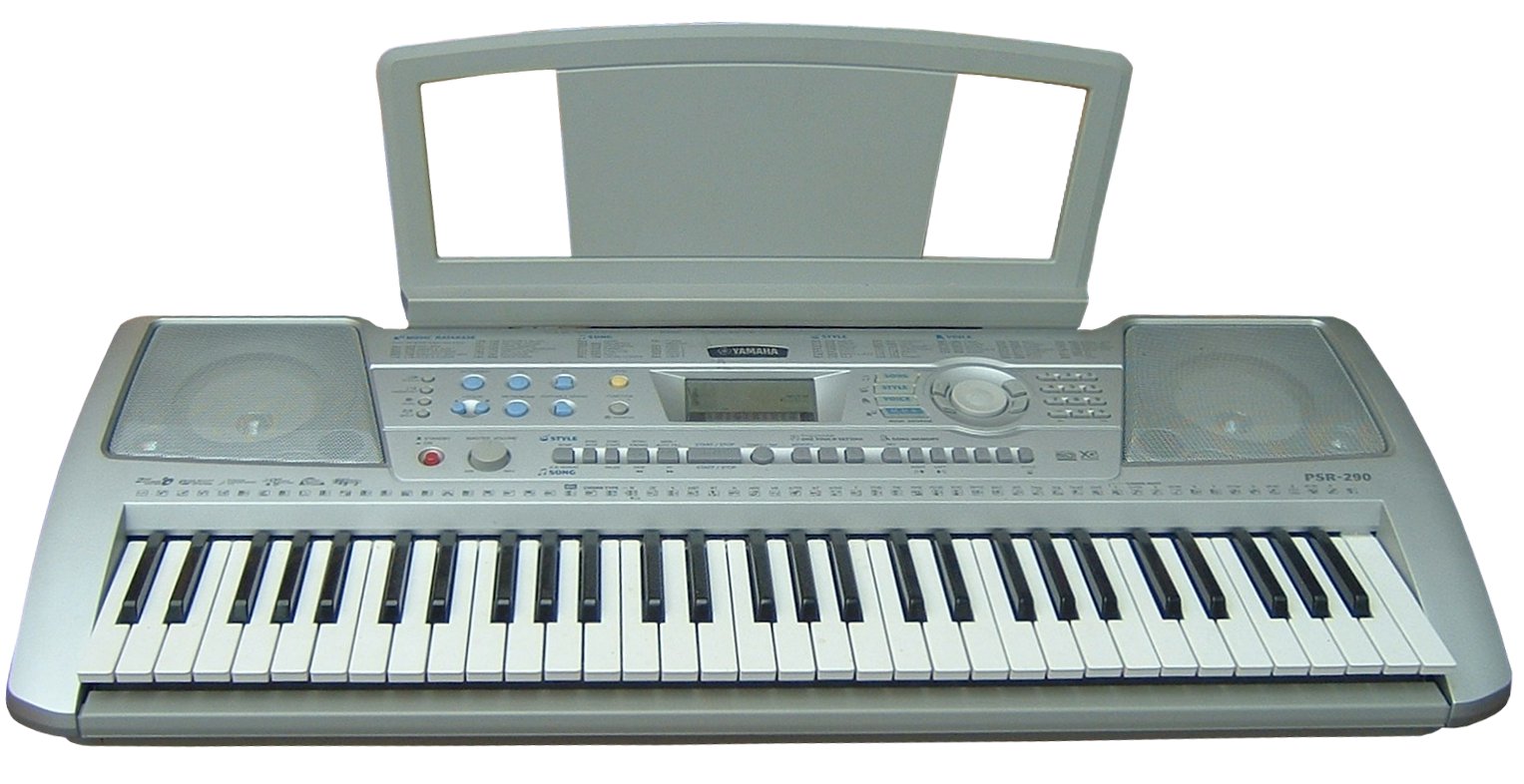|
Make It Happen (Electronic Song)
"Make It Happen" is a dance/rock song written and performed by the Bernard Sumner/ Johnny Marr band Electronic. Produced by Electronic with Arthur Baker, it is the first track on their third album ''Twisted Tenderness''. Sumner and Marr both contribute vocals and guitar, while Jimi Goodwin from Doves provides bass and Jed Lynch plays drums and percussion. Merv de Peyer is credited with programming and keyboards plus audio mixing. Arthur Baker with scratching. Intended as the first single from the album (an honour which went to "Vivid"), "Make It Happen" was eventually issued as a promotional 10" single on clear vinyl, like the previous promo " Prodigal Son". This featured an Ice-T sample that was cut from the album version due to a clearance problem. Around eleven seconds longer, it had been released on promo versions of the album but the legal issues had prevented its inclusion on the commercial edition. The version with the sample did appear on Electronic's last sin ... [...More Info...] [...Related Items...] OR: [Wikipedia] [Google] [Baidu] |
Electronic (band)
Electronic were an English alternative dance supergroup formed by singer/guitarist Bernard Sumner (of New Order) and guitarist Johnny Marr (of The Smiths). They co-wrote the majority of their output between 1989 and 1998, collaborating with Neil Tennant and Chris Lowe, of Pet Shop Boys, on three tracks in their early years, and former Kraftwerk member Karl Bartos on nine songs in 1995. History The two first met in 1984 when the Smiths guitarist contributed to a Quando Quango track that Sumner was producing. Later in 1988, Sumner was frustrated because his New Order bandmates were not receptive to his desire to add synth programming to their music. He decided to produce a solo album but found that he did not enjoy working alone, so he called Marr for help.''Q'', July 1991 Inspired by contemporary dance music like Italo house and acts such as Technotronic, their initial concept was to release white label records on Factory and remain an anonymous entity, in contrast to their ... [...More Info...] [...Related Items...] OR: [Wikipedia] [Google] [Baidu] |
Jed Lynch
Ged Lynch (born 19 July 1968, Blackburn, England) is an English percussionist and composer. Lynch had early commercial success drumming with the Ruthless Rap Assassins. In 1989 he joined The Icicle Works. He joined Shaun Ryder and Bez in Black Grape in 1993. They had a No. 8 UK hit single with "In the Name of the Father" and a No.1 UK hit album with '' It's Great When You're Straight... Yeah''. They split in 1998. Lynch has worked/recorded with Peter Gabriel, Space, Michael Hutchence, The Charlatans, Agent Provocateur, Joe Strummer, Zucchero, David Sylvian, Vittorio Cosma, Dr. John, Electronic and Joseph Arthur, Natalie Imbruglia, Chrissie Hynde, Eliza and Martin Carthy, Suggs, Shakespeare's Sister, Hanson, Tom Jones, Cat Stevens (Yusuf), Birdy, David Rhodes, Jackie Oates and Seth Lakeman. He has recorded percussion and drums on movie soundtracks, including ''Jackal'', ''28 Days Later'', '' Snatch'', ''The Batchelor'' and ''Wall-E''. In 2006 he recorded the drums for o ... [...More Info...] [...Related Items...] OR: [Wikipedia] [Google] [Baidu] |
Sampling (music)
In sound and music, sampling is the reuse of a portion (or sample) of a sound recording in another recording. Samples may comprise elements such as rhythm, melody, speech, sounds or entire bars of music, and may be layered, equalized, sped up or slowed down, repitched, looped, or otherwise manipulated. They are usually integrated using hardware ( samplers) or software such as digital audio workstations. A process similar to sampling originated in the 1940s with '' musique concrète'', experimental music created by splicing and looping tape. The mid-20th century saw the introduction of keyboard instruments that played sounds recorded on tape, such as the Mellotron. The term ''sampling'' was coined in the late 1970s by the creators of the Fairlight CMI, a synthesizer with the ability to record and play back short sounds. As technology improved, cheaper standalone samplers with more memory emerged, such as the E-mu Emulator, Akai S950 and Akai MPC. Sampling is a foundation of ... [...More Info...] [...Related Items...] OR: [Wikipedia] [Google] [Baidu] |
Prodigal Son (Electronic Song)
The Parable of the Prodigal Son (also known as the parable of the Two Brothers, Lost Son, Loving Father, or of the Forgiving Father) is one of the parables of Jesus Christ in the Bible, appearing in Luke 15:11–32. Jesus shares the parable with his disciples, the Pharisees and others. In the story, a father has two sons. The younger son asks for his portion of inheritance from his father, who grants his son's request. This son, however, is (i.e., wasteful and extravagant), thus squandering his fortune and eventually becoming destitute. As consequence, he must now return home empty-handed and intends to beg his father to accept him back as a servant. To the son's surprise, he is not scorned by his father but is welcomed back with celebration and a welcoming party. Envious, the older son refuses to participate in the festivities. The father tells the older son: "you are ever with me, and all that I have is yours, but thy younger brother was lost and now he is found." The Prodiga ... [...More Info...] [...Related Items...] OR: [Wikipedia] [Google] [Baidu] |
Vinyl Record
A phonograph record (also known as a gramophone record, especially in British English), or simply a record, is an analog sound storage medium in the form of a flat disc with an inscribed, modulated spiral groove. The groove usually starts near the periphery and ends near the center of the disc. At first, the discs were commonly made from shellac, with earlier records having a fine abrasive filler mixed in. Starting in the 1940s polyvinyl chloride became common, hence the name vinyl. The phonograph record was the primary medium used for music reproduction throughout the 20th century. It had co-existed with the phonograph cylinder from the late 1880s and had effectively superseded it by around 1912. Records retained the largest market share even when new formats such as the compact cassette were mass-marketed. By the 1980s, digital media, in the form of the compact disc, had gained a larger market share, and the record left the mainstream in 1991. Since the 1990s, records co ... [...More Info...] [...Related Items...] OR: [Wikipedia] [Google] [Baidu] |
Promotional Recording
A promotional recording, or promo, or plug copy, is an audio or video recording distributed free, usually in order to promote a recording that is or soon will be commercially available. Promos are normally sent directly to broadcasters, such as music radio and music television, television stations, and to tastemakers, such as DJs, music journalism, music journalists, and music criticism, critics, in advance of the release of commercial editions, in the hope that airplay, reviews, and other forms of exposure will result and stimulate the public's interest in the commercial release. Promos are often distributed in plain packaging, without the text or artwork that appears on the commercial version. Typically a promo is marked with some variation of the following text: "Licensed for promotional use only. Sale is prohibited." It may also state that the promo is still the property of the distributor and is to be "returned upon demand." However, it is not illegal to sell promotional re ... [...More Info...] [...Related Items...] OR: [Wikipedia] [Google] [Baidu] |
Melody Maker
''Melody Maker'' was a British weekly music magazine, one of the world's earliest music weeklies; according to its publisher, IPC Media, the earliest. It was founded in 1926, largely as a magazine for dance band musicians, by Leicester-born composer, publisher Lawrence Wright; the first editor was Edgar Jackson. In January 2001, it was merged into "long-standing rival" (and IPC Media sister publication) ''New Musical Express''. 1950s–1960s Originally the ''Melody Maker'' (''MM'') concentrated on jazz, and had Max Jones, one of the leading British proselytizers for that music, on its staff for many years. It was slow to cover rock and roll and lost ground to the ''New Musical Express'' (''NME''), which had begun in 1952. ''MM'' launched its own weekly singles chart (a top 20) on 7 April 1956, and an LPs charts in November 1958, two years after the ''Record Mirror'' had published the first UK Albums Chart. From 1964, the paper led its rival publications in terms of approac ... [...More Info...] [...Related Items...] OR: [Wikipedia] [Google] [Baidu] |
Single (music)
In music, a single is a type of release, typically a song recording of fewer tracks than an LP record or an album. One can be released for sale to the public in a variety of formats. In most cases, a single is a song that is released separately from an album, although it usually also appears on an album. In other cases a recording released as a single may not appear on an album. Despite being referred to as a single, in the era of music downloads, singles can include up to as many as three tracks. The biggest digital music distributor, the iTunes Store, accepts as many as three tracks that are less than ten minutes each as a single. Any more than three tracks on a musical release or thirty minutes in total running time is an extended play (EP) or, if over six tracks long, an album. Historically, when mainstream music was purchased via vinyl records, singles would be released double-sided, i.e. there was an A-side and a B-side, on which two songs would appear, one on each si ... [...More Info...] [...Related Items...] OR: [Wikipedia] [Google] [Baidu] |
Scratching
Scratching, sometimes referred to as scrubbing, is a DJ and turntablist technique of moving a vinyl record back and forth on a turntable to produce percussive or rhythmic sounds. A crossfader on a DJ mixer may be used to fade between two records simultaneously. While scratching is most associated with hip hop music, where it emerged in the mid-1970s, from the 1990s it has been used in some styles of rap rock, rap metal and nu metal. In hip hop culture, scratching is one of the measures of a DJ's skills. DJs compete in scratching competitions at the DMC World DJ Championships and IDA (International DJ Association), formerly known as ITF (International Turntablist Federation). At scratching competitions, DJs can use only scratch-oriented gear (turntables, DJ mixer, digital vinyl systems or vinyl records only). In recorded hip hop songs, scratched "hooks" often use portions of other songs. History Precursors A rudimentary form of turntable manipulation that is related to scr ... [...More Info...] [...Related Items...] OR: [Wikipedia] [Google] [Baidu] |
Audio Mixing (recorded Music)
In sound recording and reproduction, audio mixing is the process of optimizing and combining multitrack recordings into a final mono, stereo or surround sound product. In the process of combining the separate tracks, their relative levels are adjusted and balanced and various processes such as equalization and compression are commonly applied to individual tracks, groups of tracks, and the overall mix. In stereo and surround sound mixing, the placement of the tracks within the stereo (or surround) field are adjusted and balanced. Audio mixing techniques and approaches vary widely and have a significant influence on the final product. Audio mixing techniques largely depend on music genres and the quality of sound recordings involved. The process is generally carried out by a mixing engineer, though sometimes the record producer or recording artist may assist. After mixing, a mastering engineer prepares the final product for production. Audio mixing may be performed on a mixing ... [...More Info...] [...Related Items...] OR: [Wikipedia] [Google] [Baidu] |
Electric Keyboard
An electronic keyboard, portable keyboard, or digital keyboard is an electronic musical instrument, an electronic derivative of keyboard instruments. Electronic keyboards include synthesizers, digital pianos, stage pianos, electronic organs and digital audio workstations. In technical terms, an electronic keyboard is a synthesizer with a low-wattage power amplifier and small loudspeakers. Electronic keyboards are capable of recreating a wide range of instrument sounds (piano, Hammond organ, pipe organ, violin, etc.) and synthesizer tones with less complex sound synthesis. Electronic keyboards are usually designed for home users, beginners and other non-professional users. They typically have unweighted keys. The least expensive models do not have velocity-sensitive keys, but mid- to high-priced models do. Home keyboards typically have little, if any, digital sound editing capacity. The user typically selects from a range of preset "voices" or sounds, which include imitations o ... [...More Info...] [...Related Items...] OR: [Wikipedia] [Google] [Baidu] |






